
The architectural culture of Barcelona is rooted in the historical identity of a city shaped by a tradition of innovations. From Cerdà’s Eixample to Léon Jaussely’s plans and the Macià plan, Barcelona is a leading place in the formulation of modern theories of town planning, including pioneering projects such as the recently implemented “Superblock” plan on mobility redistribution proposed by urbanist and ecologist Salvador Rueda.
In our digitally connected and overpopulated cities, public Space has lost its capacity to power the essence of the public sphere. Issues such as security, accessibility, contamination or equality to name a few, reduce the historical function of public spaces and challenge people to find alternative physical or digital spaces with similar effects.
Technology is emerging as a powerful generator of a new digital public sphere, producing a strong impact on the physical shape of the city itself. As new tools and planning strategies rise, designers and urbanists face new challenges.
Which is the new urban configuration that emerge in the Public Space? How do urban elements interact with the citizens and how do they perform?
During this course, students will explore how to combine digital inputs and physical behaviours, defining the new generation of public spaces. Initially, students will be implementing technology not only to trigger interactions among citizens, but also to map social behaviours, environmental conditions and energy flows. Once analyzing the various layers of urban complexity, the final goal of the course will be the digital design and fabrication of a series of 1:1 urban elements to be placed in the in the Pilot Project of Poble Nou Superblock (Superilla).
The proposed urban elements will be able to perform different activities and they will integrate technologies such as sensors, gateways and/or cameras for tracing activities and flows. The system of the proposed urban elements will define scenarios of new urban services, physical interactions and future inhabitation of the Public Space. Students will be exposed in a unique environment of Applied Research by working in collaboration with experts from the industry, including Santa & Cole, an urban element design and production company as well as InAtlas, an expert company on Urban Analytics.
IAAC Global Summer School is a full-time two-week course that provides both practical and theoretical knowledge. Its structure consists in three main learning modules, led by expert tutors. In addition, lectures by renowned professionals and academics relevant to the topics to be treated during the course. These will be broadcasted in the different node-cities, all globally connected. The lecture program will be announced prior to GSS commencement. The following three course modules aim towards a common objective: the fabrication of a 1:1 urban machining intervention, transferring and digitally interrelating multiple sets of data collected from hyper-connected cities.
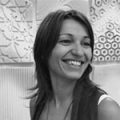
Areti Markopoulou is a Greek architect, educator and urban technologist working on the intersection between architecture and digital technologies. She is currently the Academic Director at IAAC in Barcelona, one of the leading international platforms for education. Areti is also co-editor of the Urban Next, a global network focused on rethinking architecture through the contemporary urban milieu, and co-founder of StudioP52, a collective arts & tech gallery. Her research and practice design explores new architectural models that incorporate the application of ICTs, Material Intelligence and Fabrication, allowing built and public space to dynamically adapt to behavioural and environmental changes over time. She has been developing urban projects and guidelines with the City Council of Barcelona and the Municipal Institute of Information for the implementation of ICT in the public space and the implementation of renewable Energy technologies in buildings and open spaces. Areti has also served as a curator of international exhibitions such as the Pavilion of Innovation (Construmat 2015), MyVeryOwnCity (World Bank 2011) and Fabrication Laboratory (Barcelona Design Museum 2010). She holds a Bachelor in Architecture & Engineering from DUTH – Democritus University of Thrace, an MArch from IAAC, and a Fab Academy diploma on Digital Fabrication offered by the Fab Lab Network. She is currently a PhD candidate in the UPC, researching the topic of Responsive Environments and Smart Cities. Her work has been featured in numerous exhibitions worldwide, such as the Venice Biennale, Shenzhen Bi-City Biennale, Beijing Design Week, the 3d print show, and MaterFad among others. Areti has served as an external examiner, visiting jury and lecturer in various universities such as the UCLA, SCI-Arc, NTUA, UPenn, BSSA, and AA, among others.
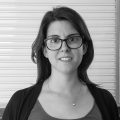
Àfrica is an architect. Her early work experience helped her develop her curiosity towards the experience of the products, the atmosphere that provides once installed in a project and how they change the space and ambience. Later on she developed a masters in architectural lighting design focussing on light and lighting and this fascinating “material”.
About two years ago joined Santa & Cole projects department helping clients to get the most in their projects by using the company products and is continuing her affair with the company witnessing all phases of a product design and development.
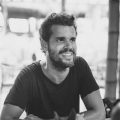
Tomas Diez is a Venezuela-born Urbanist specialized in digital fabrication and its implications in the future of cities. He is the director of Fab Lab Barcelona at the Institute for Advanced Architecture of Catalonia, the Fab Academy global coordinator, and the European project manager of the Fab Foundation. He holds a Bachelor degree in Urban Planning and Sociology, a Diploma in social work, a Master in Advanced Architecture by IAAC, and a Diploma on Digital Fabrication in a pilot program, offered by MIT Center for Bits and Atoms in 2008 as the year zero of the Fab Academy. He works as a close collaborator in the development of the Fab Lab Network together with MIT and the Fab Foundation. He is a tutor in Design at the Royal College of Arts in London; co-founder of the Smart Citizen project and StudioP52 both in Barcelona, and has been the co-chair of the FAB10 Barcelona. Tomas has been appointed by The Guardian and Nesta as one of the top 10 digital social innovators to watch in 2013, and has been awarded by the Catalan ICT association as the entrepreneur of the year in 2014-15. His research interests relate to the use of digital fabrication tools to transform the reality, and how the use of new technologies can change the way people consume, produce and relate with each other in cities.

Luis has a Master in Strategic Planning from the Berlage Institute, Rotterdam (2001), a degree in Architecture and Urban Planning from the University of Las Palmas of Gran Canaria – ULPGC (1997). He is Co-Founder and CEO of Big Data and Location Analytics company inAtlas. He is also Director of Urban Consultancy and Strategic Planning at Intelligent Coast, he specialized on reconversion of Tourist Destinations. Luis Falcón is Member of the Sectorial Commission of Knowledge and Strategy of the Tourism Table of the Generalitat of Catalonia. He is also Member of the Advisory Board of Tourism Campus of the Girona University.
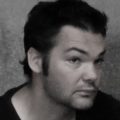
Phil Ayres is an architect, researcher and educator. He joined CITA in 2009 after a decade of teaching and research at the Bartlett School of Architecture in London, and completing his PhD in Denmark at the Aarhus School of Architecture. He has also been a partner of the architectural research and fabrication practice sixteen*(makers) since 1998. Phil’s research explores the potentials that lie at the intersection between digital and material practice. His current focus is on adaptive systems that combine technical & organic systems, together with the development of complementary design environments. This interest is currently pursued through the EU funded project flora robotica of which Phil is a Principle Investigator. Phil’s teaching roles are focused at Masters and PhD level and he is also the editor of the title Persistent Modelling – extending the role of architectural representation published by Routledge.
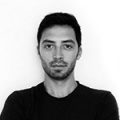
Expert in computational design and digital fabrication.
Master in Architectonic Design in 2007, Master in Advanced Architecture at IAAC [Institute for Advanced Architecture of Catalunya] in 2012, Fab Academy diploma in 2014 in the Fab Lab Barcelona, Aldo is currently involved in several projects running in parallel.
Since 2011, he is manager of Noumena, a young firm investigating between the boundaries of new digital paradigms and design strategies applied to architecture, robotics and advanced material,
He founded Fab Lab Frosinone, which he directed until 2015.
He is Director of Reshape – digital craft community.
Since 2015 he is Head of IaaC Visiting program, Director of IaaC Global Summer School and instructor of digital tools.
He is also one of the SuperNode of the Fab Academy, the educational platform founded by Neil Gershenfeld from the MIT’s Center of Bits and Atoms.
For the same program he is also coordinator of Fab Academy Paris.

Mathilde Marengo is an Australian – French – Italian PhD Architect whose research focusses on the Contemporary Urban Phenomenon, its integration with technology, and its speculative implications on the future of our planet – or the next. She is currently the Academic Coordinator and Faculty at the Institute for Advanced Architecture of Catalonia’s Advanced Architecture Group, as well as being a PhD Supervisor within the InnoChain EU research project. Mathilde has been at IAAC since 2013, where, until 2015, she was in charge of Communication & Publications. She won a research grant co-financed by Compagnia di San Paolo for the “Atlante Med-Net”project, and in support for the development of her PhD research, developed both at the PhD School of Architecture and Design at the University of Genoa, XXVI cycle, and the Universitat Politècnica de Catalunya. She obtained her International PhD title in April 2014, with “Multi City Coast. The evolving forms and structures of the Mediterranean multi-city. New models of urban thinking and perspective.” During her academic career she collaborated in several research projects investigating territorial and contemporary urban transformations. She was also a part of the Inter-University Research team for the PRIN 2010-2011 managed by Ministry of Education, University and Research (Ministero dell’Università, dell’Istruzione e della Ricerca) RECYCLE research project, focusing on urban recycling as the generator for new infrastructure and creativity in urban contexts. Her work has been published internationally, as well as exhibited, among others: Venice Biennale, Shenzhen Bi-City Biennale, Beijing Design Week, MAXXI Rome.
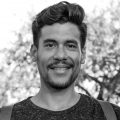
Rodrigo Aguirre is a Nicaraguan architect specialized in the fields of parametric tooling, digital fabrication and manufacturing. He obtained his bachelor in architecture at UAM (American University) in Managua, Nicaragua and completed the two year master in advanced architecture at the Institute for Advanced Architecture of Catalonia (IaaC) in Barcelona.
His ongoing collaboration with the Institute´s REsearch+DEvelopment department and IAAC special projects has involved advanced form finding and computational methods related to generative design. He is a principal member of the computational faculty, and has acted as studio instructor for the master program in 2014. From 2013-15 he has coordinated international workshops in Brazil and Nicaragua related to digital tooling, and participated as faculty in multi-scalar design workshops in Egypt and China, the latter of which focused on the production of 1:1 scale construction.
Rodrigo has also been involved with the last three editions of Iaac global summer school, acting as a tutor in 2012-13, and GSS coordinator in St. Petersburg, Russia during the 2014 session. He continues his involvement in the 2015 edition as a coordinator, tutor and manager of communications and digital media.
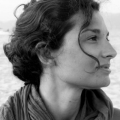
Chiara Farinea is an Italian architect and urban planner. She obtained the Phd in Urban Planning at IUAV (Venice), the Master in Advanced Architecture at IAAC (Barcelona), the Architecture University Degree at Politecnico di Milano (Milan), and she studied one year in ETSAB (Barcelona) thanks to the Erasmus Program. She is member of the Association of Architects of Genova since ten years.
Chiara Farinea is currently Head of European Projects at IAAC and contract professor of Urban Planning at the Faculty of Architecture of Genoa. Moreover, she is founding partner at Gr.IN Lab art group, exhibiting installations in 2015 at Venice Arsenale and Turin for the Italia-China Art Biennale. Her previous work experience includes being Project Manager at D’Appolonia (Genoa). For the firm she developed International Cooperation Projects, Smart Cities Initiatives and EU financed Research Projects targeted at Sustainable Development. Moreover, she coordinated D’Appolonia team in developing the proposal for the Progetto Flaminio – Rome City of Science International Competition, that won with Studio Viganò the 1st Prize.
Other working experiences includes holding the position of Project Manager/Senior Architect at Open Building Research architectural office in Genoa between 2007 and 2009 and holding the position of Junior Architect at KSP Engel und Zimmermann architectural office in Berlin between 2004 and 2006.

Àfrica is an architect. Her early work experience helped her develop her curiosity towards the experience of the products, the atmosphere that provides once installed in a project and how they change the space and ambience. Later on she developed a masters in architectural lighting design focussing on light and lighting and this fascinating “material”.
About two years ago joined Santa & Cole projects department helping clients to get the most in their projects by using the company products and is continuing her affair with the company witnessing all phases of a product design and development.

Angel Muñoz is a Programmer from La Rioja in Spain. In 2001 he moved to Barcelona where he began to work in international publicity agencies. He also worked in the interactivity and multimedia departments for brands like Coca-Cola, AUDI, Danone, SEAT, Adolfo Dominguez, winning various prizes in international publicity festivals such as Cannes and El Sol.
In 2006 he began developing an interest in open hardware and studied Electronic Product Design obtaining a Higher Vocational Training Qualification. He then began collaborating with the Hangar Medialab. Since then he has also been collaborating in various projects, also with IAAC and the Fab Lab Barcelona Pro team, including The machine to be another, Omnipresenz. First Vision, Smart Citizen. Angel is now part of the IAAC Academic team as Physical Computing Expert.
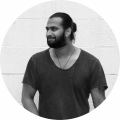
Kunal is an Indian architect and a Digital and Robotic fabrication researcher. His early work experience at Menis Arquitectos (Spain) helped him develop his curiosity towards materiality in architecture. Later to further investigate in this domain he pursued his masters at Institute for Advanced Architecture of Catalonia (IAAC) in Spain. His research interests involve synthesis of material knowledge with fabrication techniques and has been involved with various researches with biodegradable materials using robotic fabrication.
Kunal is currently active in the academic field with workshops in India, Spain, Iran and France. Continuing his affair with ‘machines making architecture’, he joined the R+D department at IAAC in 2016.
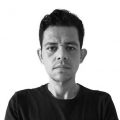
Starsky Lara is computation designer & product development Engineer, with experience in manufacturing, computer science and IoT, Master of Advanced Architecture (M.Arch) at IaaC and Master in Product Engineering and Manufacturing Processes (M.ENG) at UPC. In 2013, He has been part of project Eolic and DUMO as Software Developer and Project Manager. In 2014, he became part of Noumena by developing NERO. Currently, he is developing of VR-Edge, which is a Virtual reality tool for Web, where designers and journalism can build a new internet experiences.




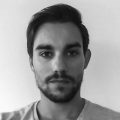
Sebastian Amorelli is an Uruguayan Architect graduated from Universidad ORT Uruguay in 2016 with an Academic Excellence Award. His final research thesis on architectural programmatic hybridisation and its potential for urban renewal and reconfiguration was later selected as a paper for the University’s annual Research Journal. He is currently completing his Master in Advanced Architecture at the Institute for Advanced Architecture of Catalonia (IaaC) specialising in computational design and digital fabrication. His latest research project is focused on the intersection of nature and and the built environment and the possibilities of applying natural occurring processes for the benefit of human production and the creation of new ecosystems.

Armin Akbari is an Architect and an IAAC student doing a degree in Master of Advanced Architecture (MAA02). Before starting his adventurous studies at IAAC, his main concern was to find and develop computational methods and techniques for CAM purposes. After attending IAAC, his work has expanded to dissimilar activities from computational design to creating interactive systems and environments. Armin’s current interest is mainly developing techniques and tools for robotic fabrication.

Iacopo Neri studied at the University of Florence (UNIFI, Italy) – School of Architecture – and attended a Master in City and Technology at the Institute for Advanced Architecture of Catalonia (IaaC, Spain) after presenting a paper about Swarm Intelligences for crowd-based analysis during the Responsive Cities Symposium (2017, Barcelona). Currently he is studying new areas of dialogue between digital simulations and craftsmanship as computational designer at External Reference Architects (Barcelona, Spain), while he is involved in the organization of international workshops to discuss the role of computer graphics and parametric programming in the field of architecture as a researcher at MTSYSStudio (Florence, Italy).

Jesús Ariel Valenzuela Hernández (Hermosillo, Sonora, Mexico 1989) is a Mexican Architect from the Universidad Autónoma de Nuevo Leon, in Monterrey, where he start his own Practice in 2015 and has develop some private projects, his work features some office, comercial and residential projects, his practice focus on implementing computational design on traditional construction techniques to find a new way to work with site resources, right now he’s finishing his Master in Advanced Architecture and applying his experience in Iaac in new Coming Projects.

Irina is an architect and researcher from Moscow.
In 2015 she obtained Master in Advanced Architecture at IAAC with a thesis devoted to robotic fabrication of algae based gels. After completing her master program she collaborated with the Fablab Moscow holding workshops on digital fabrication and organization of Moscow Mini Maker Faire, as well as instructing and coordinating IAAC GSS 2016 in Moscow.
After that she proceeded at Ros_Falguera Arquitectura in Barcelona developing proposals for international competitions (getting a special prize for the bridge proposal in Riga).
In 2017 she joined IAAC team and currently is working on Active Public Space European funded project.
–
IAAC GSS is open to creative and innovative people who are interested in fields such as architecture, urban planning, digital fabrication, design, etc., searching for a multidisciplinary experience in an international environment. No previous skills are required, although CAD design, programming and digital fabrication skills are welcome. The official language of the course is English.
After the course, the participants will have gained theoretical and applicative knowledge about current urban innovative strategies. Moreover, they will become familiar with parametric software, data visualization and the use of digital machines. In the end of the course all participants will receive a Global Summer School Diploma.
Each participant is responsible to investigate what documents are required via the embassies in their country of origin. The school will provide a confirmation letter regarding the participation in the course, and will assist where possible in the visa process.
The fee is 1500€ for Barcelona and includes all material costs needed for the course. No additional registration fee is required. Flight tickets, accommodation and food are not included in the fee. Each participant should bring his/her own computer with the software installed. Further details about the software will be given to the participants upon acceptance.
In order to register to the Global Summer School, participants need to submit the online application form, where they will be asked to upload a letter of intent and a CV. Portfolio is not required. The applications are open until the 30th of May 2017.